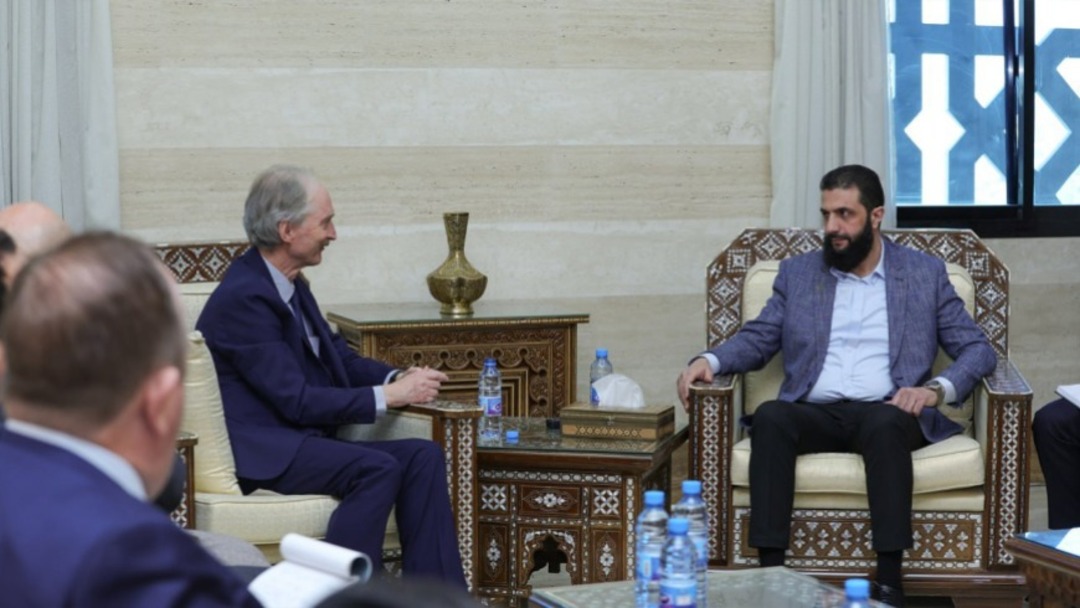-
Damascus Restricts Communication Between Organizations and International Entities… Civil Society Gripped by Concern
-
The new measures reflect an official shift towards tightening control over funding channels and external communication for civil organizations, posing a threat to the independence of humanitarian and

The Directorate of Social Affairs and Labor in Damascus issued Circular No. 2391, imposing strict restrictions on the communication of civil and humanitarian organizations with international entities and donors, requiring that all correspondence and projects pass exclusively through the Directorate of Planning and International Cooperation.
The directive, signed by Mahmoud Ali Al-Khatib, Director of Social Affairs and Labor in Damascus, mandates that organizations refrain from directly contacting international organizations, UN agencies, international partners, or Arab unions. It also forbids communication with the Ministry of Foreign Affairs and the exchange of project documents, proposals, and cooperation plans, unless done through the Directorate of Planning and International Cooperation.
Additionally, the circular requires organizations to "adhere to the contents of approvals granted to international organizations and UN agencies, refrain from undertaking any activities not explicitly approved, and coordinate with the Directorate of Planning and International Cooperation regarding such matters."
According to official rhetoric, the decision aims to "organize international cooperation files, prevent duplication of coordination, and ensure the government receives comprehensive tracking reports on implemented activities, including all necessary approvals and procedures."
The decision has sparked mixed reactions within civil society. Some observers argue that the measure effectively turns organizations into government-controlled entities, granting authorities full oversight of their projects and financial transactions while enabling them to block any undesired initiatives.
Other analysts fear that the directive could negatively impact the work of human rights organizations documenting violations, effectively leading to the "death of civil society in Syria."
Conversely, some believe the move is an attempt to pressure the European Union, which refuses to provide direct support to the government and instead channels aid through civil society. They predict that the decision may be difficult to enforce and could eventually be reversed due to its adverse impact on relations with international donors.
The directive also requires organizations to have a coordinator from the Directorate of Planning and International Cooperation present at any meetings with international entities and to submit quarterly implementation reports for all international cooperation projects carried out in partnership with UN agencies or international organizations.
These measures raise concerns about the future of international funding for humanitarian projects in Syria, particularly as the country remains in dire need of aid across various sectors, while donors insist on transparency and independence in project implementation.
You May Also Like
Popular Posts
Caricature
BENEFIT Sponsors BuildHer...
- April 23, 2025
BENEFIT, the Kingdom’s innovator and leading company in Fintech and electronic financial transactions service, has sponsored the BuildHer CityHack 2025 Hackathon, a two-day event spearheaded by the College of Engineering and Technology at the Royal University for Women (RUW).
Aimed at secondary school students, the event brought together a distinguished group of academic professionals and technology experts to mentor and inspire young participants.
More than 100 high school students from across the Kingdom of Bahrain took part in the hackathon, which featured an intensive programme of training workshops and hands-on sessions. These activities were tailored to enhance participants’ critical thinking, collaborative problem-solving, and team-building capabilities, while also encouraging the development of practical and sustainable solutions to contemporary challenges using modern technological tools.
BENEFIT’s Chief Executive Mr. Abdulwahed AlJanahi, commented: “Our support for this educational hackathon reflects our long-term strategic vision to nurture the talents of emerging national youth and empower the next generation of accomplished female leaders in technology. By fostering creativity and innovation, we aim to contribute meaningfully to Bahrain’s comprehensive development goals and align with the aspirations outlined in the Kingdom’s Vision 2030—an ambition in which BENEFIT plays a central role.”
Professor Riyadh Yousif Hamzah, President of the Royal University for Women, commented: “This initiative reflects our commitment to advancing women in STEM fields. We're cultivating a generation of creative, solution-driven female leaders who will drive national development. Our partnership with BENEFIT exemplifies the powerful synergy between academia and private sector in supporting educational innovation.”
Hanan Abdulla Hasan, Senior Manager, PR & Communication at BENEFIT, said: “We are honoured to collaborate with RUW in supporting this remarkable technology-focused event. It highlights our commitment to social responsibility, and our ongoing efforts to enhance the digital and innovation capabilities of young Bahraini women and foster their ability to harness technological tools in the service of a smarter, more sustainable future.”
For his part, Dr. Humam ElAgha, Acting Dean of the College of Engineering and Technology at the University, said: “BuildHer CityHack 2025 embodies our hands-on approach to education. By tackling real-world problems through creative thinking and sustainable solutions, we're preparing women to thrive in the knowledge economy – a cornerstone of the University's vision.”
opinion
Report
ads
Newsletter
Subscribe to our mailing list to get the new updates!






















